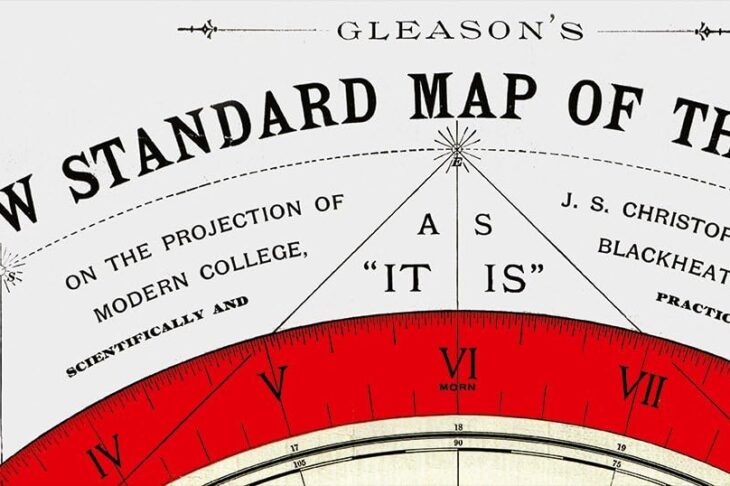
The Flat Earth Conspiracy Theory: A Modern Phenomenon
The flat Earth conspiracy theory is the belief that the Earth is not a spherical planet, as scientifically established, but rather a flat, disc-like plane. This idea, which contradicts centuries of astronomical, physical, and geological evidence, has experienced a surprising resurgence in recent years, particularly in the digital age.
While the flat Earth theory might seem like a relic of medieval thinking, its modern iteration is a fascinating case study in how misinformation, distrust in institutions, and the power of online communities can converge to revive long-debunked ideas.
Historical Context
The notion of a flat Earth is not new. Ancient civilisations, such as the Babylonians and early Egyptians, conceptualised the Earth as flat, often imagining it as a disc floating in water or supported by pillars.
However, by the time of the ancient Greeks, scholars like Pythagoras and Aristotle had already begun to argue for a spherical Earth based on observations of lunar eclipses, the curvature of the Earth’s shadow, and the changing positions of stars as one travelled north or south.

By the Middle Ages, the spherical Earth was widely accepted among educated Europeans, and the myth that medieval people believed in a flat Earth is largely a modern misconception perpetuated by 19th-century writers.
The flat Earth theory, as we know it today, owes much to the 19th-century English writer Samuel Rowbotham, who founded the “Zetetic Astronomy” movement.
Rowbotham’s book, Zetetic Astronomy: Earth Not a Globe, argued for a flat Earth based on literal interpretations of biblical texts and flawed experiments. His ideas were later popularised by the Flat Earth Society, founded in the mid-20th century, which kept the theory alive as a fringe belief.
The Modern Resurgence
In the 21st century, the flat Earth theory has experienced an unexpected revival, fuelled by the internet and social media. Platforms like YouTube, Facebook, and Twitter have allowed flat Earth proponents to connect, share ideas, and recruit new followers.
The rise of conspiracy culture, coupled with a growing distrust of scientific institutions and mainstream media, has created fertile ground for such theories to flourish.
One of the key reasons for the theory’s popularity is its appeal to a sense of scepticism and anti-establishment sentiment. In an era where trust in governments, corporations, and scientific institutions has eroded for many, the flat Earth theory offers a narrative that frames these entities as deceitful and manipulative.
Proponents argue that the spherical Earth is a lie perpetuated by NASA, scientists, and governments to control the population or hide the “true” nature of reality. This narrative resonates with individuals who feel disillusioned by authority figures and are drawn to alternative explanations for the world around them.
The Role of Social Media and Algorithms
Social media has played a pivotal role in the spread of the flat Earth theory. Algorithms on platforms like YouTube often prioritise content that generates high engagement, regardless of its accuracy.
Flat Earth videos, with their provocative claims and sensationalist titles, tend to attract significant attention, leading to their widespread promotion. This creates an echo chamber where users are repeatedly exposed to flat Earth content, reinforcing their beliefs and making it difficult for them to encounter credible, scientific counterarguments.
Moreover, the internet allows flat Earth proponents to present their ideas in a way that appears credible to the untrained eye. Sophisticated-looking videos, graphics, and pseudo-scientific explanations can be convincing to those without a strong background in science.
The sheer volume of content, combined with the emotional appeal of conspiracy narratives, makes it challenging for sceptics to debunk every claim effectively.
Psychological and Social Factors
The appeal of the flat Earth theory can also be understood through psychological and social lenses. Humans have a natural tendency to seek patterns and explanations for complex phenomena, even when those explanations are incorrect.
Conspiracy theories like the flat Earth provide simple, albeit false, answers to complex questions, offering a sense of certainty and control in an uncertain world.
Additionally, the flat Earth community provides a sense of belonging and identity for its members. Many flat Earthers describe feeling isolated or marginalised before discovering the community, which offers camaraderie and validation.
This social aspect is particularly powerful, as it reinforces belief systems and makes individuals reluctant to question or leave the group.
The Impact on Science and Society
The resurgence of the flat Earth theory is more than just a curiosity; it highlights broader issues in society, such as the erosion of trust in expertise and the challenges of combating misinformation in the digital age.
While the number of flat Earthers remains relatively small, their visibility has grown, and their ideas have seeped into mainstream discourse. This has led to concerns about the potential consequences for science education and public understanding of critical issues like climate change and vaccination.
Efforts to combat flat Earth beliefs must go beyond simply presenting scientific facts. Research has shown that confronting conspiracy theorists with evidence often backfires, reinforcing their beliefs rather than changing them.
Instead, fostering critical thinking skills, promoting media literacy, and addressing the underlying social and psychological factors that drive conspiracy thinking may be more effective strategies.
Conclusion
This conspiracy theory is a modern phenomenon rooted in historical ideas but amplified by contemporary social and technological trends. Its popularity reflects deeper issues of distrust, misinformation, and the human desire for meaning and community.
While the theory itself may seem absurd to many, its persistence serves as a reminder of the importance of addressing the root causes of conspiracy thinking and ensuring that scientific literacy and critical thinking remain central to education and public discourse.
In a world increasingly shaped by digital communication, understanding and combating such theories is essential for fostering a well-informed and rational society.

